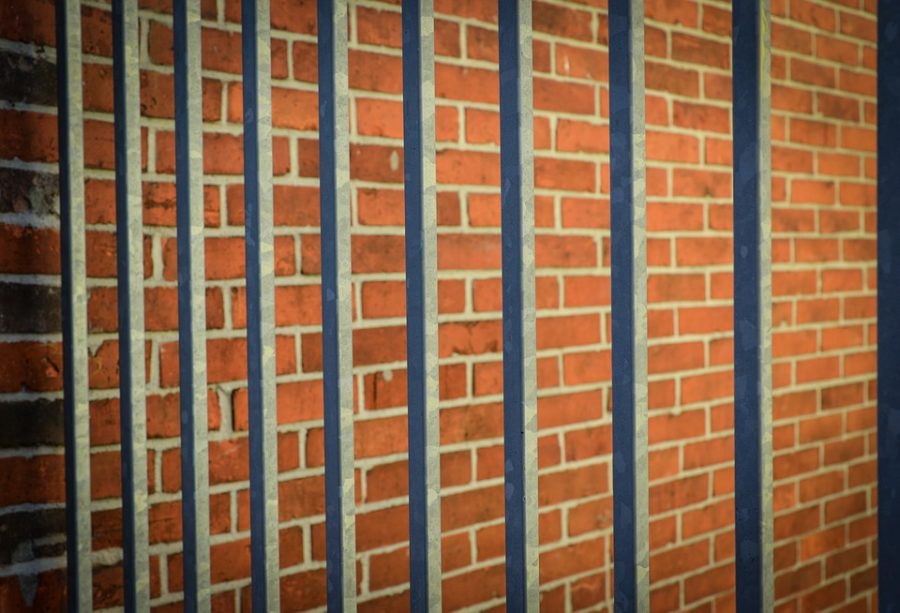Reese: Mass Incarceration is a Form of Voter Suppression
Courtesy Max Pixel.
July 21, 2019
It is no secret that the United States federal government — as well as state governments across the country — has a history of implementing laws to prevent communities of color from exercising their right to vote. Mass incarceration conceived by the War on Drugs is another tactic to suppress the vote of thousands of people long after their prison sentences are finished, while also making sure their communities have a smaller voice as a way to maintain an inherently racist system.
The United States is home to 21% of the world’s prison population, despite only accounting for 5% of the world’s population. African-Americans are five times more likely to be incarcerated than white Americans. In 2015, African-Americans and Latinx people made up 32% of the US population, yet they made up 56% of the US prison population. Pew Research predicts that in 2020, Latinx voters will only make up around 13% of the electorate and black voters around the same amount. These are just the numbers of those who are eligible to vote. There are currently 6.1 million Americans who are ineligible to vote because of a felony conviction.
Those who are incarcerated or are formerly incarcerated across the country have to deal with a state-by-state patchwork of voter laws that affect and suppress the vote by different means. There are only two states, Maine and Vermont, that never take away a person’s right to vote — even while they are in prison. This is in line with nations such as South Africa, Canada, Ireland and Spain, who allow people to vote while incarcerated.
In 16 states and D.C., voting rights are automatically restored to a person upon release. In three states, they are restored upon release and after parole is completed. In 21 states, voting rights are restored after completion of prison, parole and probation. In six states, the restoration of voting rights is dependent on the conviction and the petition to the government in a request of these rights. In two states, Iowa and Kentucky, voting rights can only be granted after one petitions the government for their voting rights.
In the 2018 midterm elections, 64% of Florida voters voted in favor of Amendment 4 on their statewide ballot. Amendment 4 would have automatically restored the voting rights of convicted felons upon completion of their sentence. Only those who committed murder or a sexual offense could not get their voting rights restored. Prior to the passage of Amendment 4, Florida used to be like Iowa and Kentucky, in that one would have to petition the court for their voting rights. 10.5% of Florida’s voting-age population is disenfranchised due to past convictions. Under Amendment 4, 1.4 million people would regain their voting rights.
Florida has once again made the news. In light of the passage of Amendment 4, Governor Rick DeSantis (R) has signed into law SB 7066. This bill places restrictions on Amendment 4, requiring all residents with a felony to have paid all financial responsibilities required by their sentence before regaining their right to vote again. This in effect is another “poll tax” placed on voters, which is in violation of the 24th amendment to the Constitution. It should be noted that in 2018, Florida Gubernatorial and US Senate races both were won by Republicans — albeit by such thin margins that a recount was required. One has to wonder if the election outcome would have been different if the disenfranchised Floridians were able to vote in the 2018 midterms. Now, it seems as if Florida Republicans have made it a part of their agenda to suppress voters who pose a threat to their re-election.
This benefits a system of elections that make sure the entirety of a community is not fairly represented. Every American has a right to vote upon turning 18 years old. This is not something that should be taken away or suppressed, as that only serves to ensure that our government is not truly representing the will of the people.
Mass incarceration has targeted and disproportionately affected communities of color, most significantly black communities. One of the many consequences these actions have had is the suppression of the votes of specific voters. Mass incarceration is an effective tool of suppression, in order to perpetuate the reign of the current ruling class.








